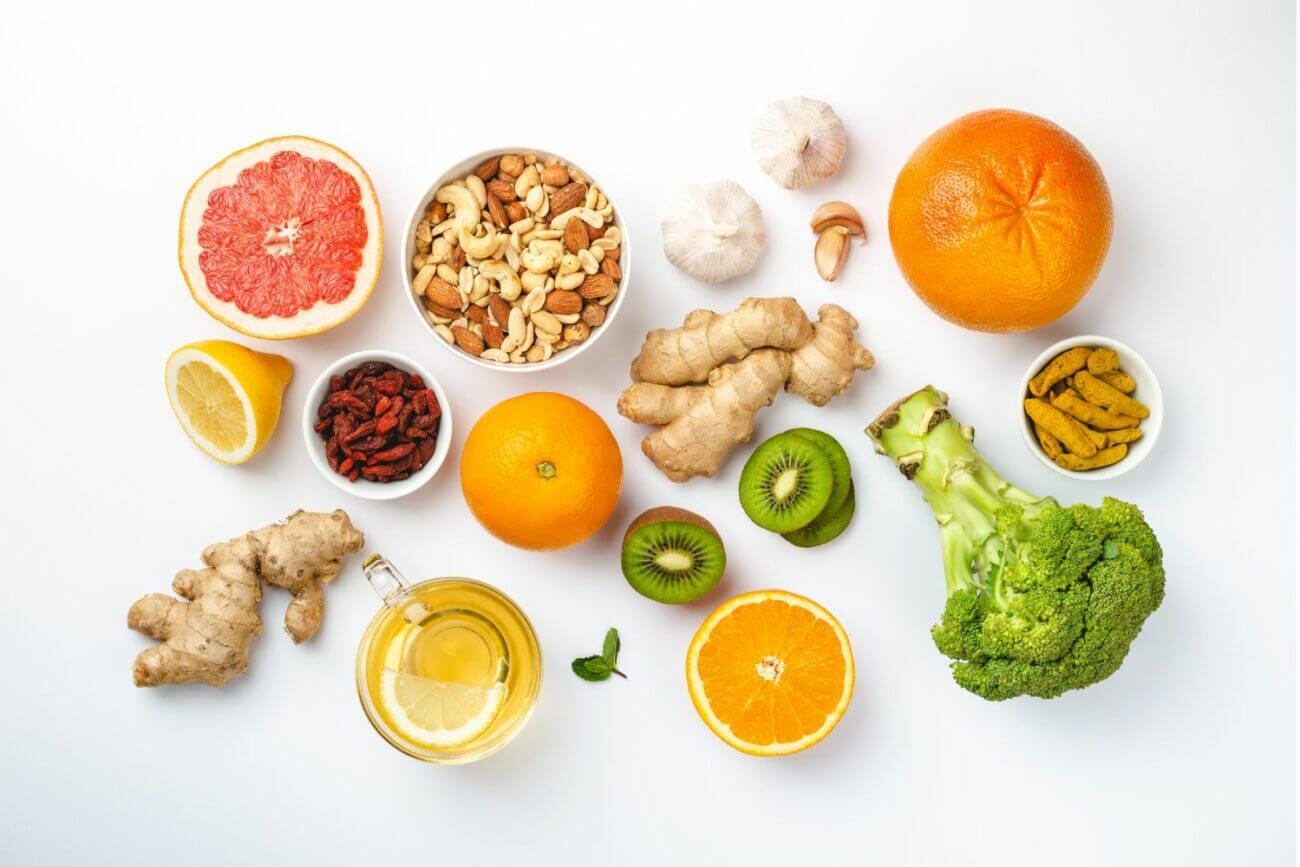With winter in full swing, we’ve been confronted with the triple threat of the flu, Covid-19, and respiratory syncytial virus (RSV), collectively referred to as the “tripledemic”. So what can we do to build a strong immune system and reduce our risk of infection? Read on as we spotlight helpful tips to prioritize your immune health through proper nutrition, hydration, quality of sleep, stress management, and other immune-supporting practices.
"A good night’s sleep provides preventive and restorative benefits for the immune system, and to maximize these benefits, it’s recommended to get at least seven of sleep per night."
You are what you eat
While no single food can prevent an illness, incorporating a balanced diet comprised of whole foods like vegetables, fruits, whole grains, lean proteins, and healthy fats can help boost your immunity by providing you with the vitamins, minerals, and antioxidants you need. Our nutrition also plays a crucial role in shaping the microbiome, gut barrier function, reducing inflammation, and white blood cell function, all of which are critical components of the immune system. Research shows that the Mediterranean diet is highly recommended to best supporting immune function, check out some tips on building a nutritious meal plan here.
Stay hydrated
Hydration is crucial for maintaining good health as the human body is composed of roughly 70% water. Adequate water intake supports the delivery of essential nutrients to our cells, helps eliminate waste, and fortifies our mucous membranes, which serve as a barrier against invading pathogens. The National Academies of Sciences, Engineering, and Medicine recommends that men aim for a daily intake of approximately 3.7 liters (13 cups) of total beverages, while women should aim for 2.7 liters (9 cups).
Get enough sleep
Adequate sleep is vital for maintaining a strong immune system. During sleep, our body produces cytokines, essential proteins that help combat infections and inflammation. A good night’s sleep provides preventive and restorative benefits for the immune system, and to maximize these benefits, it’s recommended to get at least seven to nine hours of sleep per night. Check out our previous blog on ways to optimize your quality of sleep.
Manage stress
Chronic stress has been demonstrated to weaken the immune system by producing excessive cortisol in the body, leading to increased inflammation and decreased lymphocytes (white blood cells that combat infections). Practicing activities like meditation and yoga for just 10-15 minutes several times a week can help mitigate the effects of stress by reducing cortisol levels and promoting circulation, which helps filter out harmful toxins.
Get physical
Regular exercise has been proven to enhance immune function and decrease the risk of illness. A 2019 report found that moderate-intensity physical activity can boost the circulation of immune cells in the body and aid in the early detection of potential infections. Examples of moderate-intensity activity include walking 2 miles in 30 minutes, swimming for 20 minutes, and more. The objective is to elevate your heart rate to 50-60% above its resting state, click here for even more workout ideas.
Boost gut health with probiotics
Consuming fermented foods, like kefir, yogurt, kimchi, and sauerkraut, can provide probiotics to improve gut health. A diet rich in fermented foods increases gut microbiome diversity and reduces inflammatory proteins. There are also several probiotics supplements on the market to support your intake, but it’s advised to speak to a medical professional before incorporating any supplements.
Limit alcohol consumption
Excessive alcohol consumption weakens the immune system, making it more susceptible to illness. Alcohol reduces good bacteria and antibodies necessary for fighting infections. Even the occasional binge drinking (4+ drinks for women) and (5+ drinks for men) can weaken your immune system due to the reduction in T cells. To ensure that drinking doesn’t impact your immune system, it’s recommended that men have 2 drinks or fewer per day while women should have 1 drink or fewer.
If you’re a TouchCare member who would like to learn more about what their health plan (i.e. FSAs & HSAs) cover for immunity treatments and/or supplements, or you’d like to find a medical provider to support your with your healthcare needs, click here to get in touch with a Health Assistant.
Inhale. We've got this. Exhale.
Understanding healthcare; with us, it’s personal.


